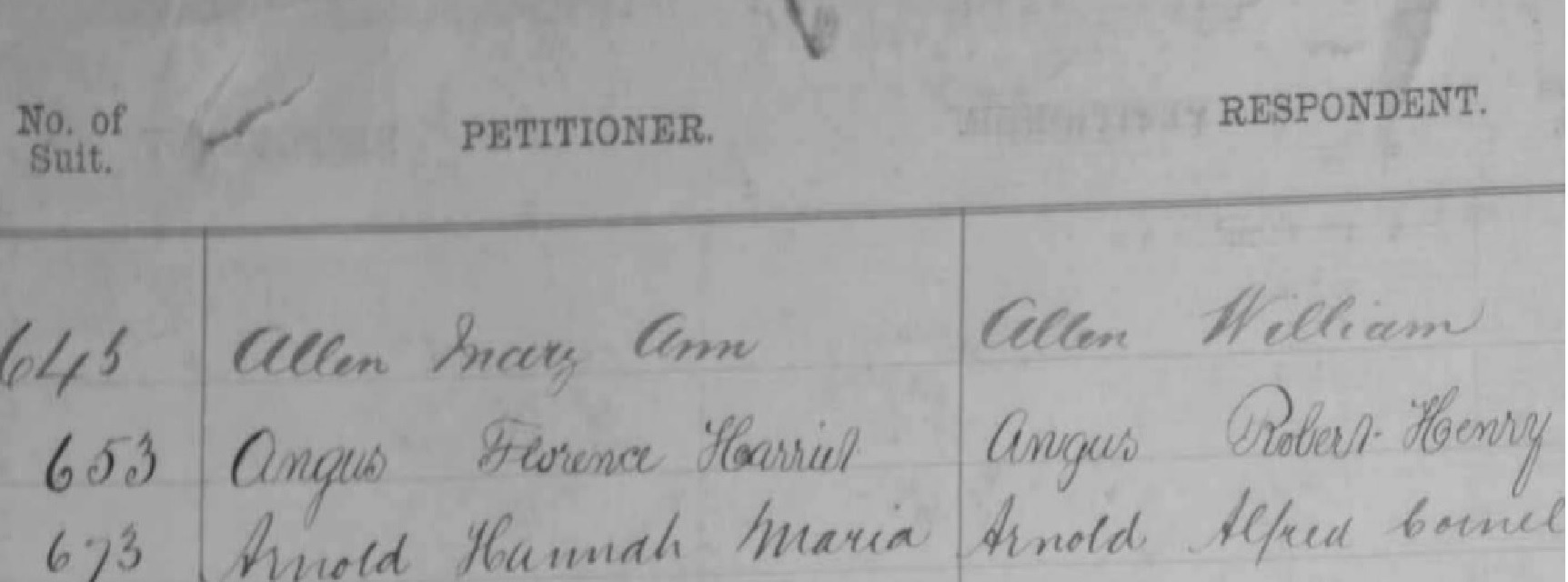Last updated:
What do I need to know?
PROV holds open records for divorce hearings in Melbourne, Ballarat, Bendigo and Geelong.
To search, you need to know the surname of either the husband or wife.
How do I search?
The search process is different depending on the location and date the case was heard.
For Melbourne divorce cases (1861-1942), just type a surname into the first search box 'Melbourne divorce records (1861-1942)'.
For Melbourne divorce records 1943-1950, you will first need to find the case number by viewing the original or digitised index for these records.
Once you've found a name of interest in the index, enter the case number and year into the second search box 'Melbourne divorce records (1943-1950)'.
For regional divorce cases (1890-1950), just type a surname into the third search box 'Regional divorce records (1890-1950)'.
About these records
A divorce case file is a record of the evidence prepared for the Supreme Court hearing of the case.
The Supreme Court heard divorce cases in Victoria until 1975 (divorce cases are now heard by the Family Court of Australia).
Divorce proceedings commenced when the husband or wife (the petitioner) or their legal representative (known as a proctor) lodged a petition for divorce at the Prothonotary’s Office of the Supreme Court.
Records of divorce cases held up until the end of 1950 are available at PROV. For more recent records, or records of hearings in locations other than Melbourne, Ballarat, Bendigo and Geelong, contact the Supreme Court of Victoria.
Who created these records?
Apart from the earliest cases, all these records were created by the Supreme Court of Victoria (VA 2549).
Next Steps
Once you have found records of interest to you, view them online or order them for viewing in our Reading Room.
What are in these records?
The case file will contain a number of documents that might include:
- the petition stating the grievance
- affidavits (or supporting statements) by the petitioner
- a formal answer by the respondent and any co-respondents (in cases of adultery, both parties to the adultery were summoned)
- further affidavits in support of that answer
- orders by the court directing who is to pay for the costs of the case
- a praecipe, which is an order to the clerks of the Court to produce a writ containing the formal decree made by the justice. The praecipe will often have a summary of the decision.
Note that not all cases were heard. Sometimes they were withdrawn before the hearing or otherwise settled.
Material in the Public Record Office Victoria archival collection contains words and descriptions that reflect attitudes and government policies at different times which may be insensitive and upsetting
Aboriginal and Torres Strait Islander Peoples should be aware the collection and website may contain images, voices and names of deceased persons.
PROV provides advice to researchers wishing to access, publish or re-use records about Aboriginal Peoples
